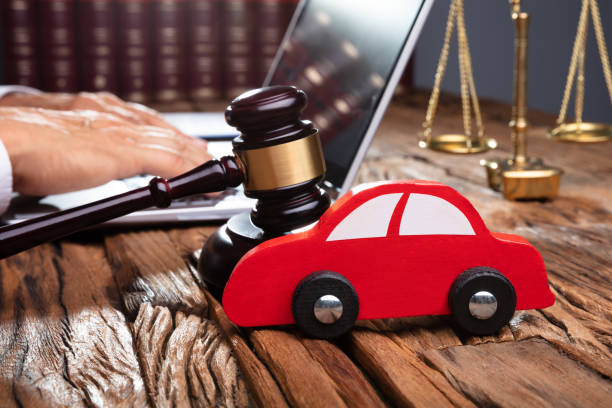Are you looking for a driving offence lawyer? Driving offences in New South Wales (NSW) are regulated under the Road Transport Act and the Crimes Act 1900. The penalties for driving offences vary depending on the type of offence, the circumstances surrounding the offence, and the offender’s traffic record. Some driving offences can be major traffic offences under the Road Transport Act.
Some of the most common driving offences in NSW are:
- drink driving,
- drug driving,
- violating traffic rules,
- driving whilst suspended
- dangerous driving, and
- failing to stop and assist after a vehicle impact causing injury or death.
For a more comprehensive discussion about NSW driving offences, check out this article.
If you or someone you know has committed any of these driving offences, you need to consult a driving offence lawyer to assist you in dealing with the legal consequence of committing such acts.
This article will discuss the qualities you must look for in getting a driving offence lawyer, possible defences for your driving offence case, and some frequently asked questions about driving offences.
Qualities of the Best Driving Offence Lawyer
Given below are some qualities to look for when choosing the best driving offence lawyer:
- Communication skills. Your lawyer should have excellent communication skills, both in the courtroom and in preparation. They should be able to communicate effectively with their clients and other parties involved in the case.
- Experienced confidence. Years of experience in handling driving offence cases is a good mark of a good lawyer. One must be confident in their abilities to represent their clients in court and they should be able to provide valuable advocacy and negotiation skills to work towards the best possible outcome for their client’s case.
- Honest integrity. A high level of honesty and integrity is a must. They should be transparent with their clients about the strengths and weaknesses of their case and provide realistic expectations of the case’s outcome.
- Trust and dedication. Your lawyer should provide the best possible representation for their clients and be available to answer any questions or concerns that their clients may have.
- Specialisation in traffic law. Specialisation in traffic law and knowledge of the NSW traffic law is desirable. They should be able to provide advice on how to avoid breaking the law and defend their clients against the charges.
When choosing your driving offence lawyer, make sure to do the following before you seal the deal:
- Get recommendations from friends, family, or colleagues.
- Speak to several lawyers before making a decision.
- Make sure the lawyer is familiar with the specific type of driving offence you are dealing with.
- Ask about the lawyer’s fees and payment terms.
- Get everything in writing, including the lawyer’s retainer agreement.

Defences Your Driving Offence Lawyer May Use
- Honest and reasonable mistake of fact. If you can prove that you made an honest and reasonable mistake of fact, you may be able to defend yourself against a driving offence.
- Duress or necessity. If you can prove that you were forced to commit the driving offence due to duress or necessity, you may be able to defend yourself against a driving offence.
- Lack of intent. If you can prove that you did not intend to commit the driving offence, you may be able to defend yourself against a driving offence.
- Challenging the evidence. If you can challenge the evidence against you, you may be able to defend yourself against a driving offence.
- Procedural errors. If there were procedural errors in the way the police conducted the breath test or the arrest, you may be able to defend yourself against a driving offence.
- Involuntary intoxication. If you can prove that you were involuntarily intoxicated, you may be able to defend yourself against a driving offence.
However, the defences available to you will depend on the specific circumstances of your case. This is why we recommend that you seek legal advice from a driving offence lawyer in NSW to determine the best defence strategy for your case.
5 Frequently Asked Questions About Driving Offences in NSW
Knowledge of driving offences in NSW can help drivers avoid penalties. These are some of FAQs about driving offences in New South Wales:
1. What are the major traffic offences in NSW?
Section 4 of the Road Transport Act provides a list of offences that are considered to be major traffic offences in New South Wales. These include drink driving, drug driving, dangerous driving, predatory driving, and failing to stop and assist after a vehicle impact causing injury or death.
2. What are the consequences of driving offences in NSW?
The consequences of driving offences in NSW vary depending on the type of offence, the circumstances surrounding the offence, and the offender’s traffic record. Penalties may include fines, demerit points, and licence disqualification, and even imprisonment in some cases.
3. What are the long-term consequences of having a criminal record for a driving offence in NSW?
A criminal record can make it difficult to find employment, especially in certain industries that require background checks. Moreover, you might have a hard time obtaining visas for travel or work purposes because some countries may deny entry to individuals with criminal records.
However, do note that the consequences of having a criminal record for an offence in NSW will depend on the nature and severity of the offence, as well as the individual’s personal circumstances.
4. Can a driver be charged with both drug driving and drink driving in NSW?
Yes, a driver can be charged with both drug driving and drink driving in NSW. In fact, as of July 2021, drink driving and drug driving are now a combined offence in NSW. This means that if a driver is found to have both alcohol and drugs in their system while driving, they can be charged with both offences.
5. How can I avoid breaking the law while driving in NSW?
To avoid breaking the law while driving in NSW, it is important to obey road rules, including speed limits, traffic signals, and road signs. It is also important to avoid driving under the influence of drugs or alcohol, and to ensure that your motor vehicle is roadworthy and registered[2].
6. Are lawyers knowledgeable about various traffic laws and legislation?
Yes. Aside from NSW traffic laws, traffic offence lawyers are knowledgeable about various Australian laws. They also know various traffic laws like the Road Safety Act 1986 which governs road safety laws in Victoria.

Talk to a Driving and Traffic Offence Lawyer
It’s important to access proper representation early on. Why? Driving and traffic offences can lead to large fines, loss of demerit points, loss of or licence suspension, or imprisonment. For more serious offences, you may be charged and have to attend court where you plead guilty or not guilty. An experienced traffic lawyer should be able to help with such cases
If you need help dealing with driving offences, traffic offences, or other criminal and traffic matters, contact a driving offence lawyer from JB Solicitors today. If you plead guilty about a traffic offence to the local or magistrates court, we can help lessen your maximum penalty. We can also provide expert legal defence for traffic offences and help protect your licence and future.
For more information, submit an enquiry here. We have Sydney and Melbourne traffic lawyers who can help with various state traffic laws.
